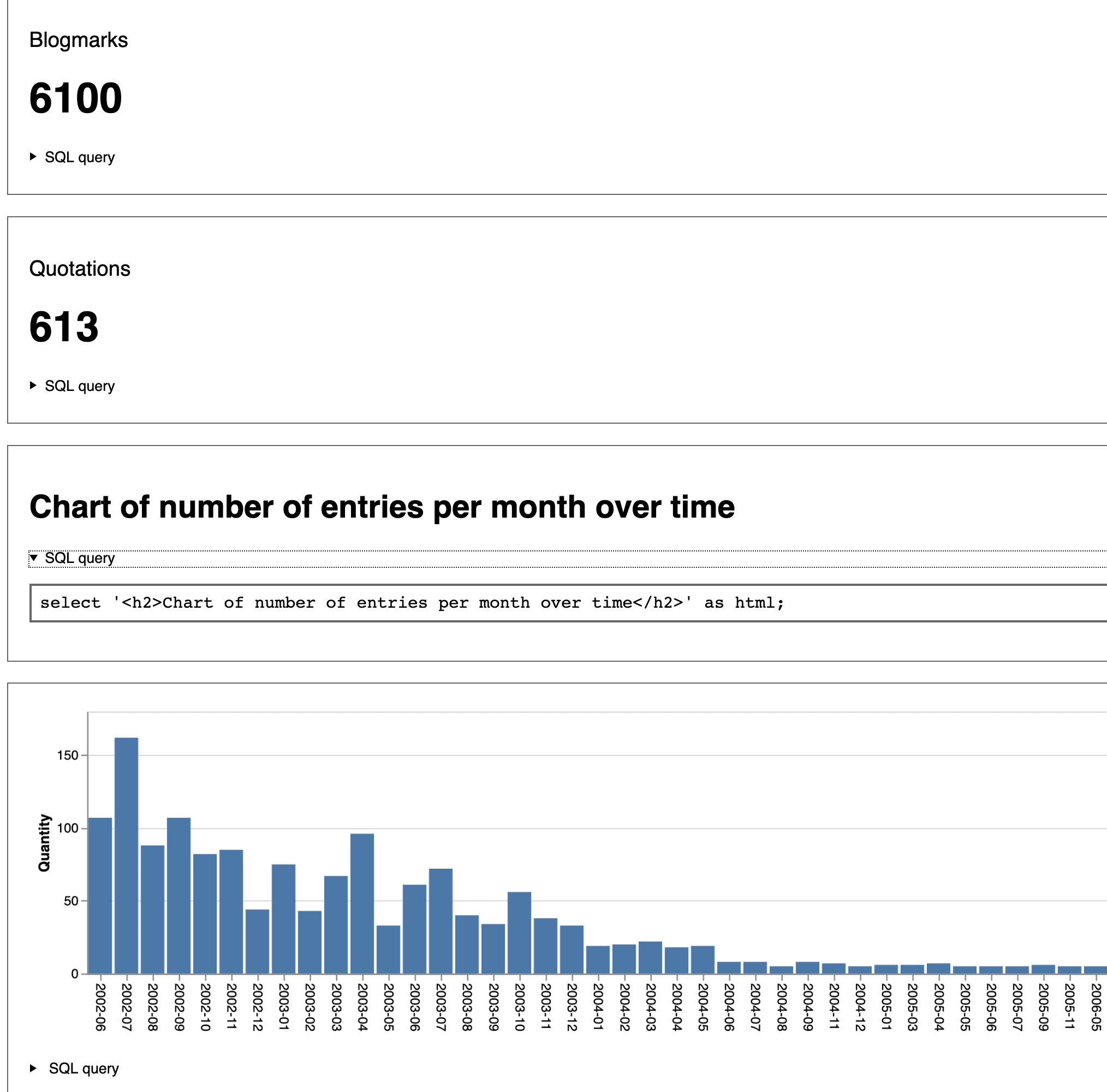13 posts tagged “authentication”
2021
Weeknotes: django-sql-dashboard widgets
A few small releases this week, for django-sql-dashboard, datasette-auth-passwords and datasette-publish-vercel.
2020
datasette-auth-passwords. My latest plugin: datasette-auth-passwords provides a mechanism for signing into Datasette using a username and password (which is verified in order to set a ds_actor authentication cookie). So far it only supports passwords that are hard-coded into Datasette’s configuration via environment variables, but I plan to add database-backed user accounts in the future.
Datasette 0.44: The annotated release notes
I just released Datasette 0.44 to PyPI. With 128 commits since 0.43 this is the biggest release in a long time—and likely the last major release of new features before Datasette 1.0.
[... 1,648 words]2019
NGINX: Authentication Based on Subrequest Result (via) TIL about this neat feature of NGINX: you can use the auth_request directive to cause NGINX to make an HTTP subrequest to a separate authentication server for each incoming HTTP request. The authentication server can see the cookies on the incoming request and tell NGINX if it should fulfill the parent request (via a 2xx status code) or if it should be denied (by returning a 401 or 403). This means you can run NGINX as an authenticating proxy in front of any HTTP application and roll your own custom authentication code as a simple webhook-recieving endpoint.
2009
django-piston. Promising looking Django mini-framework for creating RESTful APIs, from the bitbucket team. Ticks all of Jacob’s boxes, even including built-in pluggable authentication support with HTTP Basic, Digest and OAuth out of the box.
2008
Google’s Usability Research on Federated Login. Fascinating—suggests an approach to federated auth based on the Amazon.com “Yes, I have a password” login flow. Feels convoluted to me but apparently it tests really well against a mainstream audience. The more research shared around this stuff the better.
Something you had, Something you forgot, Something you were
2007
Django snippets: Authenticate against Active Directory. Uses a custom authentication backend with the Python ldap module. If Django hasn’t seen the user before a new Django user account is created with data from ldap.
OAuth Core 1.0. The final spec. Expect to see this crop up all over the place in the next few months.
OAuth: Your valet key for the Web. OAuth is a really important new specification that aims to solve the “give this application permission to do X on my behalf” problem once and for all.
Jottit. Aaron Swartz’s latest venture: a complete rethink of the Infogami concept. Well worth checking out for the extremely thoughtful way it introduces features, and the way account creation with a password remains optional until you want to add access control.
Wrong-headed impersonation. Kim Cameron discusses user absent authentication, and emphasises the importance of delegation using delegation coupons.
2006
How is Google giving me access to this page?
Google have an open URL redirector, so you can craft a link that uses that:
[... 35 words]